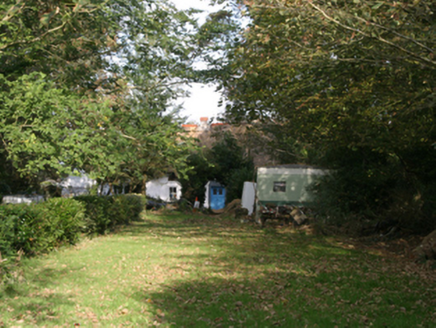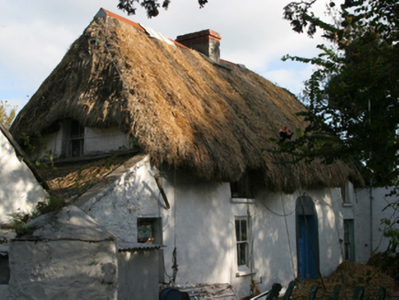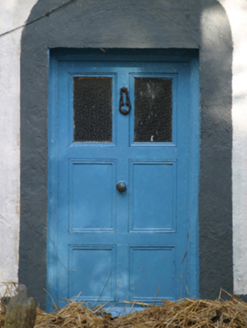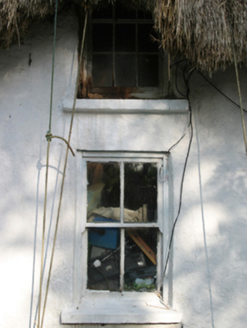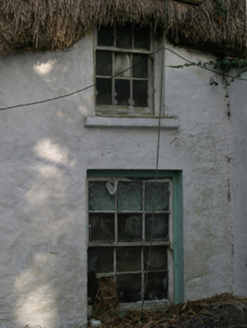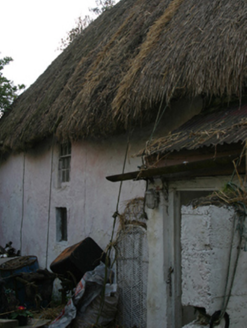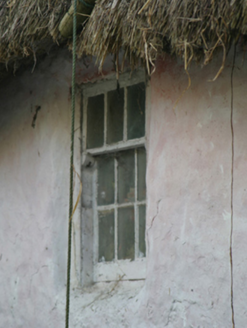Survey Data
Reg No
15704846
Rating
Regional
Categories of Special Interest
Architectural, Social
Original Use
Farm house
Date
1700 - 1840
Coordinates
309877, 109571
Date Recorded
23/10/2007
Date Updated
--/--/--
Description
Detached three-bay single-storey lobby entry thatched farmhouse with half-dormer attic, extant 1840, on a rectangular plan. Occupied, 1990. Now disused. Hipped barley thatch roof with pressed iron ridge centred on cement rendered chimney stack having red brick corbelled stepped capping, and blind stretchers to degraded eaves having blind scallops. Limewashed rendered battered walls. Square-headed central door opening with overgrown threshold, and concealed dressings including timber lintel framing glazed timber panelled door. Square-headed window openings with concrete or rendered sills, and concealed dressings framing two-over-two (ground floor) or three-over-six (half-dormer attic) timber sash windows having part exposed sash boxes. Set in unkempt grounds perpendicular to lane with limewashed cylindrical piers to perimeter having conical capping supporting flat iron "farm gate".
Appraisal
A farmhouse identified as an important component of the vernacular heritage of south County Wexford by such attributes as the compact rectilinear lobby entry plan form; the construction in unrefined local materials displaying a battered silhouette with sections of "daub" or mud suggested by an in the "House and Building Return" Form of the National Census (NA 1901; 1911); the disproportionate bias of solid to void in the massing; and the high pitched roof showing a degraded barley thatch finish replenished (1990) by Laurence "Larry" Murphy (Higginbotham ----, 171). A prolonged period of unoccupancy notwithstanding, the elementary form and massing survive intact together with substantial quantities of the historic or original fabric, thus upholding the character or integrity of the composition. Furthermore, adjacent limewashed outbuildings (extant 1840) continue to contribute positively to the group and setting values of a neat self-contained ensemble making a picturesque, if increasingly forlorn visual statement in a sylvan street scene.
